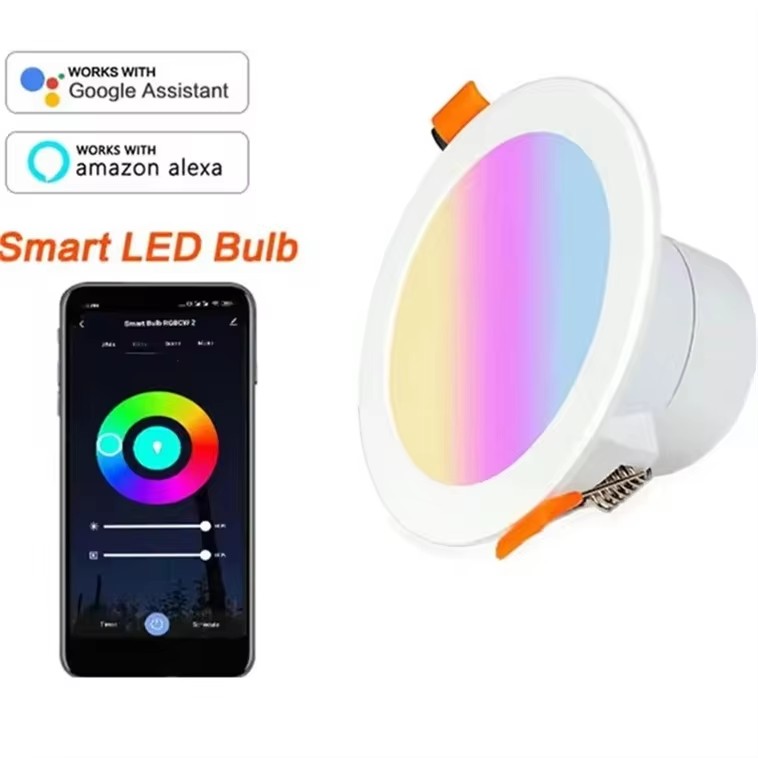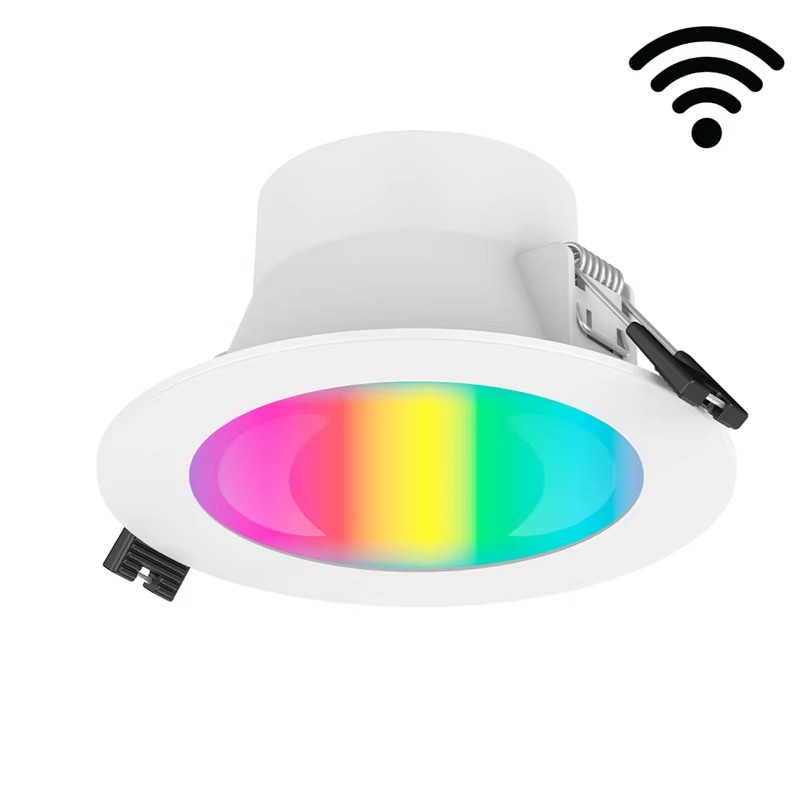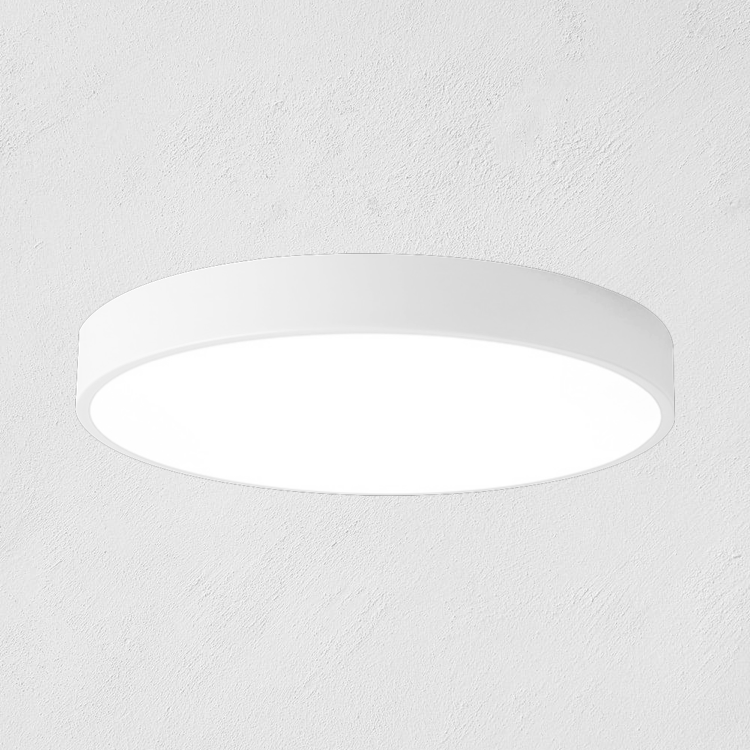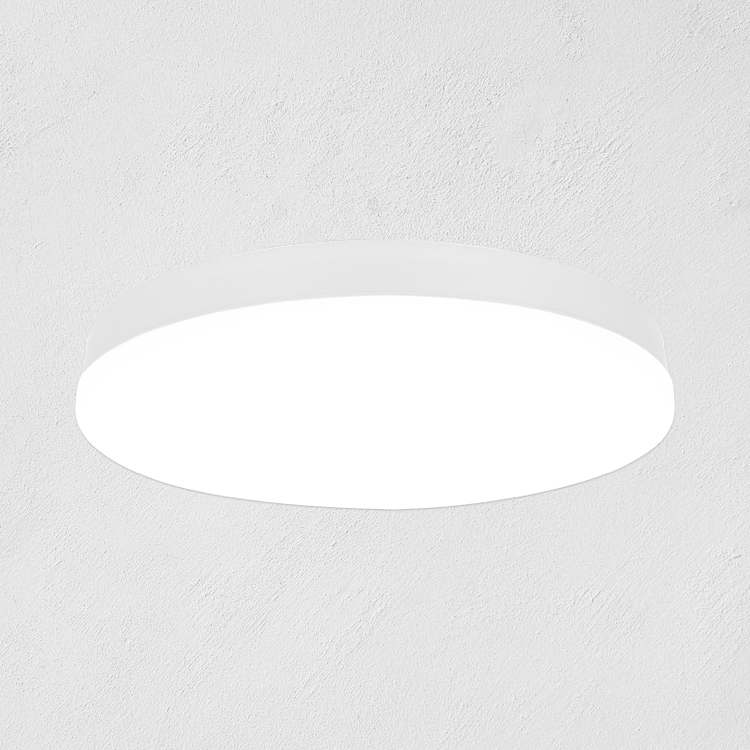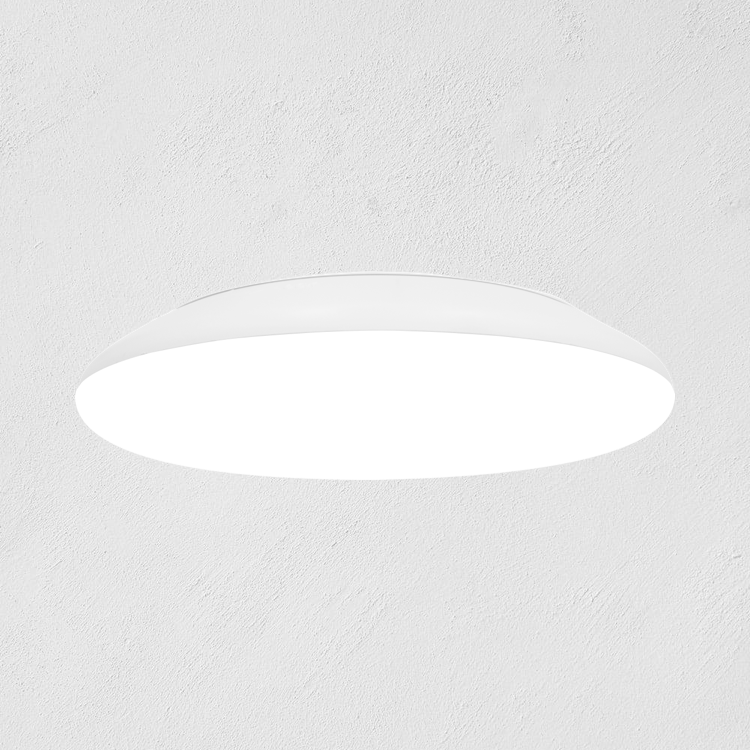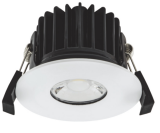Lighting plays a crucial role in our daily lives, influencing ambiance, energy consumption, and overall efficiency. With the rise of smart technology, LED downlights have become a modern alternative to traditional lighting options such as incandescent bulbs, halogen lamps, and fluorescent tubes.
Rayvenlight Smart LED Downlight
Here we compare smart LED downlights and traditional lighting across five key aspects: energy efficiency, functionality, lifespan, cost-effectiveness, and environmental impact.
1. Energy Efficiency: Lower Consumption, Higher Savings
Traditional Lighting
Incandescent bulbs convert only about 10% of their energy into light, wasting the remaining 90% as heat.
Fluorescent lights are more efficient but still lose energy in heat dissipation.
Smart LED Downlights
LEDs convert 80-90% of electrical energy into light, significantly reducing energy waste.
Smart features like dimming, motion sensors, and scheduling help optimize energy consumption.
Example: A smart LED system can automatically adjust brightness based on daylight or turn off when a room is unoccupied, saving additional energy.
2. Functionality: Basic vs. Smart Control
Traditional Lighting
Simple on/off operation, sometimes with a manual dimmer switch.
No remote control or automation features.
Smart LED Downlights
Can be controlled via smartphone apps, voice assistants (Alexa, Google Assistant), or remote control.
Offer adjustable color temperature (warm/cool light) and RGB color options for different moods and activities.
Can be programmed with schedules, motion detection, or integration with smart home systems.
3. Lifespan: Durability and Replacement Costs
Traditional Lighting
Incandescent bulbs: ~1,000 hours
Halogen bulbs: 2,000 – 4,000 hours
Fluorescent lights: 7,000 – 15,000 hours
More frequent replacements increase long-term costs and maintenance efforts.
Smart LED Downlights
Lifespan: 25,000 – 50,000 hours (5–10 times longer than incandescent bulbs).
LEDs are solid-state devices, making them more resistant to damage and wear compared to fragile filaments in traditional bulbs.
4. Cost-Effectiveness: Upfront vs. Long-Term Savings
Traditional Lighting
Lower initial cost but higher electricity consumption and frequent replacement costs.
Example: Incandescent bulbs are cheap but require more replacements and increase electricity bills.
Smart LED Downlights
Higher initial cost, but energy savings and longevity offset the price over time.
Many smart LEDs allow automated brightness adjustment, further reducing costs.
5. Environmental Impact: Sustainability Matters
Traditional Lighting
Incandescent and halogen bulbs consume more energy, increasing carbon emissions.
Fluorescent bulbs contain mercury, making disposal hazardous and environmentally unfriendly.
Smart LED Downlights
Lower energy consumption reduces the carbon footprint.
No toxic materials like mercury, making them safer for disposal.
Fewer replacements mean less waste in landfills.
Conclusion: The Future of Lighting
| Category | Traditional Lighting | Smart LED Downlights |
| Energy Efficiency | High consumption | Low consumption, smart optimization |
| Functionality | Basic on/off | Remote control, automation, color adjustment |
| Lifespan | Short (1,000-15,000 hours) | Long (25,000-50,000 hours) |
| Cost-Effectiveness | Higher long-term costs | Lower long-term costs |
| Environmental Impact | Higher waste and emissions | Sustainable and eco-friendly |
Smart LED downlights outperform traditional lighting in multiple aspects, including energy efficiency, functionality, lifespan, cost-effectiveness, and environmental sustainability. While traditional lighting may still be common due to its lower upfront cost, the long-term benefits of smart LED technology make it the superior choice for modern homes and businesses.
If you're considering upgrading your lighting system, investing in smart LED downlights is a smart choice for convenience, savings, and sustainability. Browse the Rayvenlight Smart LED Downlight collection for more.


